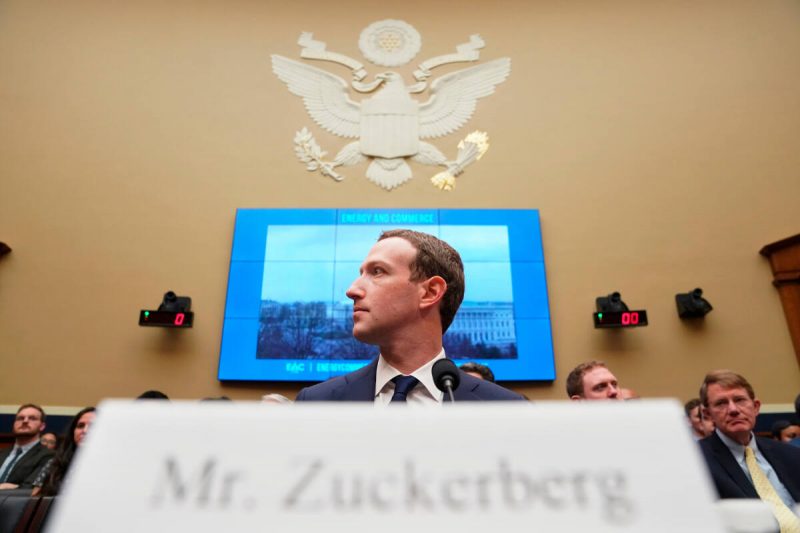In relocations that could move the balance of power in social networks and the wider digital environment, the Federal Trade Commission (FTC) and more than 40 states on Wednesday filed different antitrust claims implicating Facebook of being a monopoly that uses its market supremacy to squash competitors and vacuums up smaller competitors.
The development, while noteworthy in being the very first U.S. antitrust action versus Facebook, was expected following an 18-month investigation into the company by federal regulators and the state chief law officers. Critically, fresh legal obstacles get here as Facebook contends with some of the most major external competitive dangers to its business in years, including the video-sharing platform TikTok, which went beyond 2 billion international downloads in the spring, according to scientist Sensor Tower.
Taken together, rising competitors and a hard regulative crackdown could unseat a company that has become the second-largest digital advertising platform on the planet. And the regulatory crackdown is primed to be significant: In a significant gesture, the FTC grievance promotes Facebook to divest photo-sharing app Instagram and messaging service WhatsApp, 2 properties that have ended up being core growth engines for the social networking giant as its name platform slows down. Facebook bought Instagram for $1 billion in 2012 and WhatsApp for $19 billion 2 years later. The sense from regulators now is that it was an error to ever approve those acquisitions, which a Facebook separation is the long-awaited reckoning for a company that has stretched its tendrils too far for too long.
“Facebook’s actions to entrench and keep its monopoly deny customers the benefits of competition,” Ian Conner, director of the FTC’s Bureau of Competition, stated in a press declaration. “Our goal is to roll back Facebook’s anticompetitive conduct and restore competition so that innovation and free competition can prosper.”
The news gets here less than two months after another antitrust grievance submitted by the Department of Justice against Google, the only advertising platform larger than Facebook. Sharper examination cast on Huge Tech stalwarts recommends seismic changes are incoming not only for web users but also the marketers that rely on Google and Facebook to reach countless consumers. Marketers have increasingly revealed their own annoyance with those exact same platforms, with numerous boycotting Facebook last summer over its failure to suppress hate speech and misinformation. The increase of newer apps like TikTok and a pandemic-driven windfall for comparatively older competitors like Snapchat reveals brands today no longer have a lack of options to turn to as the so-called duopoly lands on shakier ground.
“The long-lasting possibilities are huge at this point,” Jay Friedman, president of programmatic companies Goodway Group, stated of the antitrust suits over email. “Everything from a settlement and fine with more stringent oversight in the future to a full break up is possible. Short-term this provides competitors and upstarts a window to innovate and produce while Facebook is under the greatest microscopic lense yet.”
Facebook has landed in the FTC’s crosshairs prior to and paid the company a record $5 billion fine in 2015 in the wake of the Cambridge Analytica data-privacy scandal from 2018. That Facebook could take such a charge in stride speaks with its powerful stature and cash troves. It created profits of $21.5 billion in the third quarter of 2020 alone– the vast bulk of it from advertising– and has seen engagement with its app suite skyrocket as people seek to stay linked throughout the pandemic.
Regulators have broadly had a hard time reigning in web business that wields enormous impact, but the kind of influence that doesn’t constantly develop concrete damage to customers, who do not have to spend for product or services like the complimentary Facebook and Instagram apps. The FTC and 46 states, along with the District of Columbia and Guam, in their respective claims center their arguments on business damage Facebook has done in either purchasing or squelching competitors, which, in turn, supposedly limits customer options as individuals invest more time online.
Instagram when concerned Facebook CEO Mark Zuckerberg as the two companies raced to stake out a bigger claim in mobile photo-sharing nearly a years earlier. Rather than continuing to compete with the upstart, Facebook bought it in an offer that eventually won consentaneous regulative approval. Instagram is now predicted to go beyond 1 billion international users this year, according to Insider Intelligence. In time, Instagram has grown popular enough to begin siphoning users and engagement far from the core Facebook platform, the FTC complaint stated– a signal that Facebook being required to spin off the app might seriously curtail its service.
“Facebook has become a powerful player in digital advertising over the years, not only because of the development of the core Facebook social media network however likewise because of the method Instagram has ended up being linked with Facebook’s advertisement buying system,” Debra Aho Williamson, a primary analyst at eMarketer, which is owned by Service Insider moms and dad Axel Springer, said over e-mail. “This year, we expect Instagram will take in 12% of U.S. digital ad spending, more than double its portion of just 2 years back.”
WhatsApp isn’t a moneymaker for Facebook, but it’s the most popular messaging service worldwide with over 2 billion worldwide users, the majority of them based outside the U.S. Facebook has actually recently started a quest to better generate income from WhatsApp, as reported in Bloomberg, and has continually added brand-new shopping abilities and client service functions to the platform. Previously this month, it obtained Kustomer, a consumer relationship management platform, for $1 billion in an offer to strengthen the messaging service’s potential customers. If losing Instagram would exterminate Facebook’s profits beloved at the moment, then losing WhatsApp might cut off the business’s next huge chance to improve the internet.
And while those are the most existential dangers for Facebook, the antitrust cases might alter the equation in other ways. Facebook has constantly been aggressive about cribbing features from rivals, many notoriously stories, a vanishing photo- and image-collage format, from Snapchat. In August, Instagram presented a short-form video function called Reels that closely mirrors TikTok.
“With a suit filed, it will be much riskier for Facebook to introduce brand-new functions to its platforms that appear to copy rivals’ differentiators,” Friedman said. “If TikTok or other platforms had been keeping back launching any functions– for whatever factor– now is a time these platforms could benefit from this.”
There is eventually no real precedent for the FTC’s case because equivalent fits versus Microsoft and AT&T precede an age when the internet and social media dominated customers’ lives. Those cases can still be useful in gauging how the social media market might relocate the action to a possible break up.
“Antitrust separations in the telecoms industry in the 1980s and with Microsoft in 2001 opened the marketplaces to other players,” Forrester analyst Jessica Liu and researcher Sarah Dawson wrote in an article about the antitrust action. “Facebook, Inc. will simply continue its recognized practice of copying rivals with poorer variations– but in apps that depend on an aging user base as younger friends look for more recent experiences like TikTok and Triller.”

Flagging empire
Any legal fight to break up Facebook will likely take years to resolve, and the social media network is already highly condemning the FTC’s actions.
“Now, several years later, with relatively no regard for settled law or the consequences to innovation and investment, the agency is stating it got it wrong and wants a do-over,” Jennifer Newstead, vice president and general counsel at Facebook, wrote in an intense blog post reacting to the suit. “In addition to being revisionist history, this is simply not how the antitrust laws are expected to work.”
Facebook has seemed to steel itself for this moment in other methods. The business is in the middle of an ambitious, years-long strategy to unify all of its services highly on the back end, which may make them more difficult to separate. In September, Facebook started allowing some cross-app functionality in the chat features of Instagram and Messenger, and it prepares to ultimately layer WhatsApp into that equation.
“The apps are inextricably connected and while any breakup sounds good on paper, in practice, duplicative feature/functionality across its apps currently exist,” Liu and Dawson composed.
The result is that separating Facebook will not be simple, and even if the FTC is successful, changes will not happen overnight. Brands are unlikely to leap ship en masse, if at all. Facebook offers unmatched reach amongst the social platforms, along with wielding an abundant advertising network and suite of advertisement products and content formats to engage customers.
“Cash streams where individuals invest their time online, if users keep utilizing Facebook items –– and I don’t see any reason they must suddenly stop– huge financial investments will keep coming,” Roberto Pizzato, head of marketing at programmatic performance company MainAd, stated in emailed remarks.
Still, it’s hard not to see the moment as the biggest indication yet of a dominant platform revealing signs of decrease. Regardless of the outcome of the FTC case, Facebook’s bargaining chips will see their value decreased in the wake of such historical legal challenges as the business attempts to balance running among the farthest-reaching digital operations worldwide while justifying its scope.
“The secret will be for Facebook to stay up to date with the quality of its community regardless of brand-new regulations that might be limiting their capability to manage data and settlements with brand names. The effect might be that the company established by Zuckerberg will have less power to work out deals,” Pizzato stated.
“That stated, the history of the web is an example of how U-turns and disruptive changes can take place quite rapidly,” Pizzato included. “Facebook’s exceptionalism couldn’t last forever, in specific now that the consequences of its supremacy are so clear and deeply rooted in the most pressing issues of our times –– i.e. phony news, hate speech, level playing field, privacy, and the digital economy.”









